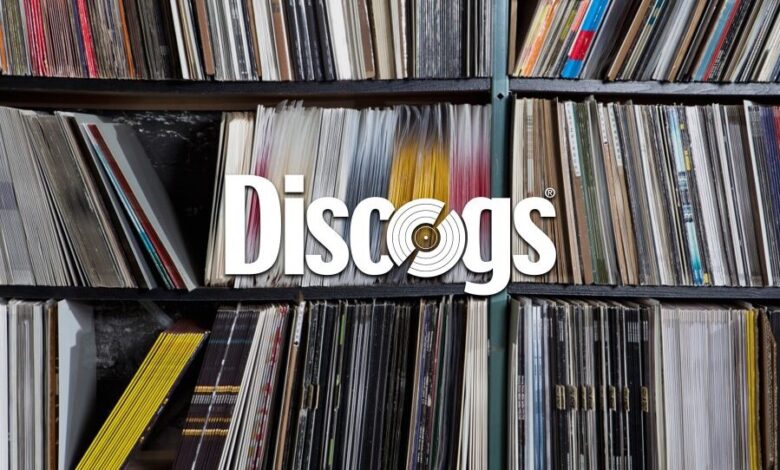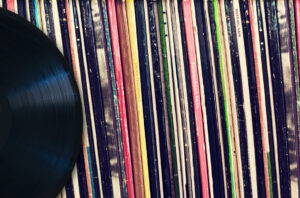Discog Define: Breaking Down the World of Music Discographies Like a Pro

In the ever-evolving world of music, the term discography is more than just a list—it’s a roadmap through an artist’s creative journey. Whether you’re a dedicated music collector, a curious fan, or a budding music journalist, understanding discographies (or discogs, as many call them) is essential to truly appreciating the scope of an artist’s work. Welcome to Discog Define, where we break down the world of music discographies like seasoned pros.
What Is a Discography?
At its core, a discography is a complete catalog of music recordings by a particular artist or band. This includes albums, EPs, singles, collaborations, live recordings, compilations, and sometimes even unreleased material. It’s essentially the artist’s musical fingerprint, showing not only what they’ve released but how their style and influence have evolved over time.

Why Discographies Matter
A discography tells a story. It reflects the artist’s growth, experiments, successes, and even missteps. For fans, it’s a deep dive into their favorite music. For collectors, it’s a blueprint for finding rare pressings and hidden gems. For music critics, it’s the framework for understanding cultural and artistic significance.
Key Reasons to Explore Discographies:
-
Discover Evolution: See how an artist’s sound and themes shift over time.
-
Find Rare Tracks: Hidden songs, limited releases, and regional exclusives often live in the margins of a discog.
-
Understand Context: Discographies provide historical and industry context, showing where albums sit in time relative to world events or musical trends.
Breaking Down a Typical Discography
To analyze a discography like a pro, you need to look beyond just the release titles. Here’s what to consider:
1. Studio Albums
These are the main pillars of any discography. They typically reflect the artist’s most complete vision and are often the centerpiece of critical analysis.
2. EPs and Singles
While shorter in length, EPs (Extended Plays) and singles often serve as experimental playgrounds or hype-builders for larger releases.
3. Live Albums and Bootlegs
These showcase the raw, unfiltered performance style of an artist and sometimes include alternate versions of well-known songs.
4. Compilations and Greatest Hits
Great for newcomers to get a taste of an artist’s best work, but also useful for tracking changes in production quality and public reception over time.
5. Collaborations and Guest Appearances
These can reveal an artist’s versatility and influence in other genres or among peers.
Tools of the Trade: Where to Explore Discographies
A number of online platforms have revolutionized how we study and enjoy music discographies:
-
Discogs.com: The go-to site for music collectors, featuring an extensive user-submitted database of physical music releases from around the world.
-
RateYourMusic: Great for reviews, ratings, and tracking your personal collection.
-
AllMusic: Offers detailed artist bios, discographies, and album reviews.
-
Streaming Services (Spotify, Apple Music): While not always comprehensive, they make it easy to explore an artist’s major releases.
Pro Tips for Navigating Discographies
-
Go Chronological: Start from the beginning to appreciate the artist’s growth.
-
Compare Eras: Note how the production, lyrical themes, and genres shift over time.
-
Check Editions: Deluxe versions, remasters, and reissues often contain bonus tracks or alternate takes worth exploring.
-
Look for Patterns: Are there recurring collaborators, themes, or label changes? These often signal creative pivots or industry shifts.
Final Thoughts
Understanding discographies is more than a music nerd’s hobby—it’s a way to connect deeper with the art and the artist. Whether you’re flipping through vinyl, building playlists, or diving into digital archives, remember: each release is a piece of a bigger picture.
So the next time someone mentions “discog,” you won’t just nod—you’ll dive in with confidence and curiosity, ready to explore the intricate world of music, one track at a time.
FAQs About Discog Define
1. What does “Discog” mean?
“Discog” is short for discography, which refers to the complete collection of music releases by an artist or band. This includes studio albums, singles, EPs, live recordings, and more.
2. What is “Discog Define”?
Discog Define is a concept or guide that helps music lovers, collectors, and researchers understand and explore music discographies like professionals. It breaks down how to read, analyze, and appreciate an artist’s full body of work.
3. Why is understanding a discography important?
A discography tells the story of an artist’s creative evolution. It helps fans track changes in style, themes, and collaborations over time. It’s also useful for discovering hidden tracks, rare releases, and understanding the historical context of each release.
4. How can I find an artist’s complete discography?
You can explore full discographies on trusted platforms like:
-
Streaming services like Spotify, Apple Music, or TIDAL (though they may be incomplete)
5. Is Discogs.com the same as Discog Define?
No. Discogs.com is a user-driven music database and marketplace. Discog Define is a broader educational and analytical approach to understanding music discographies. However, Discogs.com is one of the best tools for applying what you learn through Discog Define.
Also Read: Sofia Gomez Fapello: Age, Height, Biography, and Many More
6. Can I build my own discography list?
Absolutely! Many music fans build personal discog lists using spreadsheets, journal apps, or platforms like Discogs.com. It’s a great way to organize your collection or track your musical exploration.
7. What’s the difference between a studio album and a compilation?
-
Studio Album: Original work created and produced by the artist, usually intended as a complete project.
-
Compilation: A collection of tracks, often greatest hits or themed selections, sometimes curated by a label or third party.
8. Are live albums and bootlegs part of a discography?
Yes! Many discographies include live albums, bootlegs, and unofficial recordings—especially in genres like rock, jazz, and hip-hop, where live performance and improvisation are key parts of the culture.
9. Do all artists have discographies online?
Most popular and even underground artists will have a digital discography available somewhere. However, for very niche, local, or older artists, the information may be scattered or incomplete.
10. Can discographies include unreleased or leaked songs?
Sometimes. While not officially part of a commercial discography, fans and collectors often document unreleased or leaked tracks in bootleg or “unofficial” discog lists.



